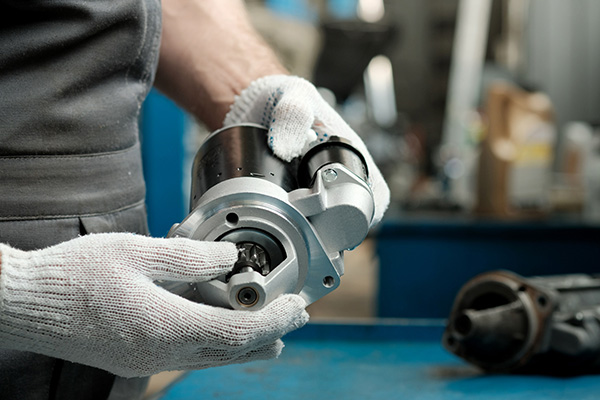
There’s nothing more frustrating than getting into your car, turning the key, and hearing… nothing. A car that refuses to start can send anyone into panic mode, especially when you're in a hurry. But before you stress out or immediately call for help, understanding the common reasons behind why a car won’t start can help you identify the issue—and possibly even fix it yourself. From battery issues to fuel problems, let’s explore the most common culprits behind a non-starting vehicle and what you should do next.
1. Battery Issues
One of the most frequent reasons a car won’t start is a dead or weak battery. The battery provides the initial electrical power needed to start the car, and if it’s drained or faulty, you might hear nothing but a clicking sound or no sound at all when you turn the key. This issue can happen for a variety of reasons, including leaving the lights on, extreme weather conditions, or an aging battery.
Check if your headlights, dashboard lights, or other electrical components turn on. If they don’t, it’s likely the battery is dead. In this case, jump-starting the car might be the quickest fix. If jump-starting works, be sure to have the battery tested afterward to determine if it needs replacement. If the battery repeatedly drains, you may have a larger electrical issue at hand.
2. Starter Motor Problems
The starter motor is responsible for physically turning the engine over when you turn the key. If the starter motor is faulty, the engine won’t crank at all, and you might just hear a clicking sound. A worn-out starter motor will struggle to engage and can prevent the car from starting altogether.
Listen for a clicking noise when you turn the key, which could indicate a faulty starter. In this case, you’ll need to have the starter motor inspected and replaced by a professional, as this isn’t a DIY-friendly fix.
3. Faulty Ignition Switch
Another potential cause is a malfunctioning ignition switch. This small component allows power from the battery to reach the starter motor. If the ignition switch is worn out or damaged, the starter motor won’t get the signal to crank the engine, and your car will stay silent when you turn the key.
One way to check if the ignition switch is the problem is by turning on your dashboard lights. If they flicker or don’t turn on at all, the ignition switch could be to blame. If this is the issue, it’s best to have it replaced by a qualified technician.
4. Fuel System Issues
Without fuel, your car won’t run, and problems in the fuel system can prevent it from starting. The issue might be as simple as running out of gas (don’t worry, it happens to the best of us), or it could be something more complex, like a clogged fuel filter or a malfunctioning fuel pump.
First, check the fuel gauge to ensure you’re not out of gas. If you have enough fuel, listen for a faint buzzing sound when you turn the key—this is the fuel pump priming the engine. If you don’t hear anything, it could indicate a bad fuel pump. In that case, it’s best to have your fuel system inspected by a professional.
5. Alternator Failure
The alternator’s job is to keep the battery charged while your car is running. If the alternator fails, the battery will drain quickly, and eventually, the car won’t start. Signs of alternator issues include flickering headlights or electrical components acting erratically before the car fails to start.
If you suspect an alternator issue, test the battery voltage with a voltmeter. A fully charged battery should read around 12.6 volts. If the battery drains even after being recharged, it’s likely the alternator is faulty. Alternator replacement is generally best handled by a professional.
6. Check the Fuses
While it’s less common, a blown fuse could be the reason your car won’t start. Modern cars have a variety of fuses that control different electrical components, including the ignition system and fuel pump. If one of these fuses blows, it could cut off power to essential parts of your car.
Locate your car’s fuse box (usually under the dashboard or in the engine bay) and inspect for any blown fuses. Most fuses are color-coded, making it easy to spot a blown one. If you find a blown fuse, replace it with one of the same rating and see if that resolves the issue.
Don’t let car troubles ruin your day! Bring your vehicle to Gowen’s Automotive Repairs for fast, reliable service. Our technicians are trained to handle everything from faulty starters to fuel system issues so you can drive with confidence again.